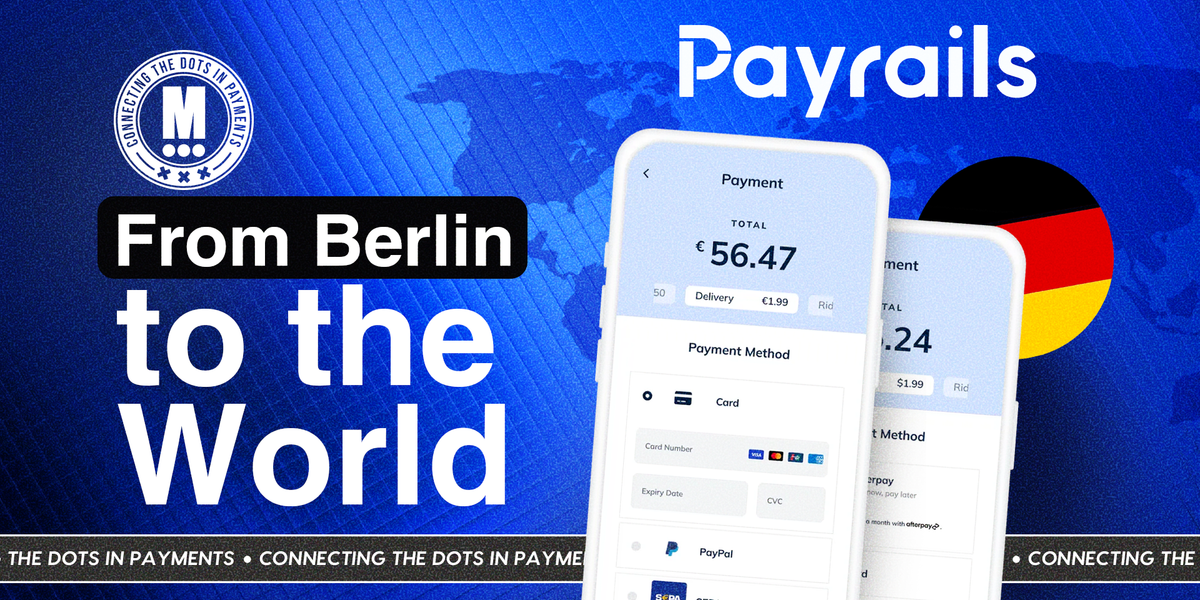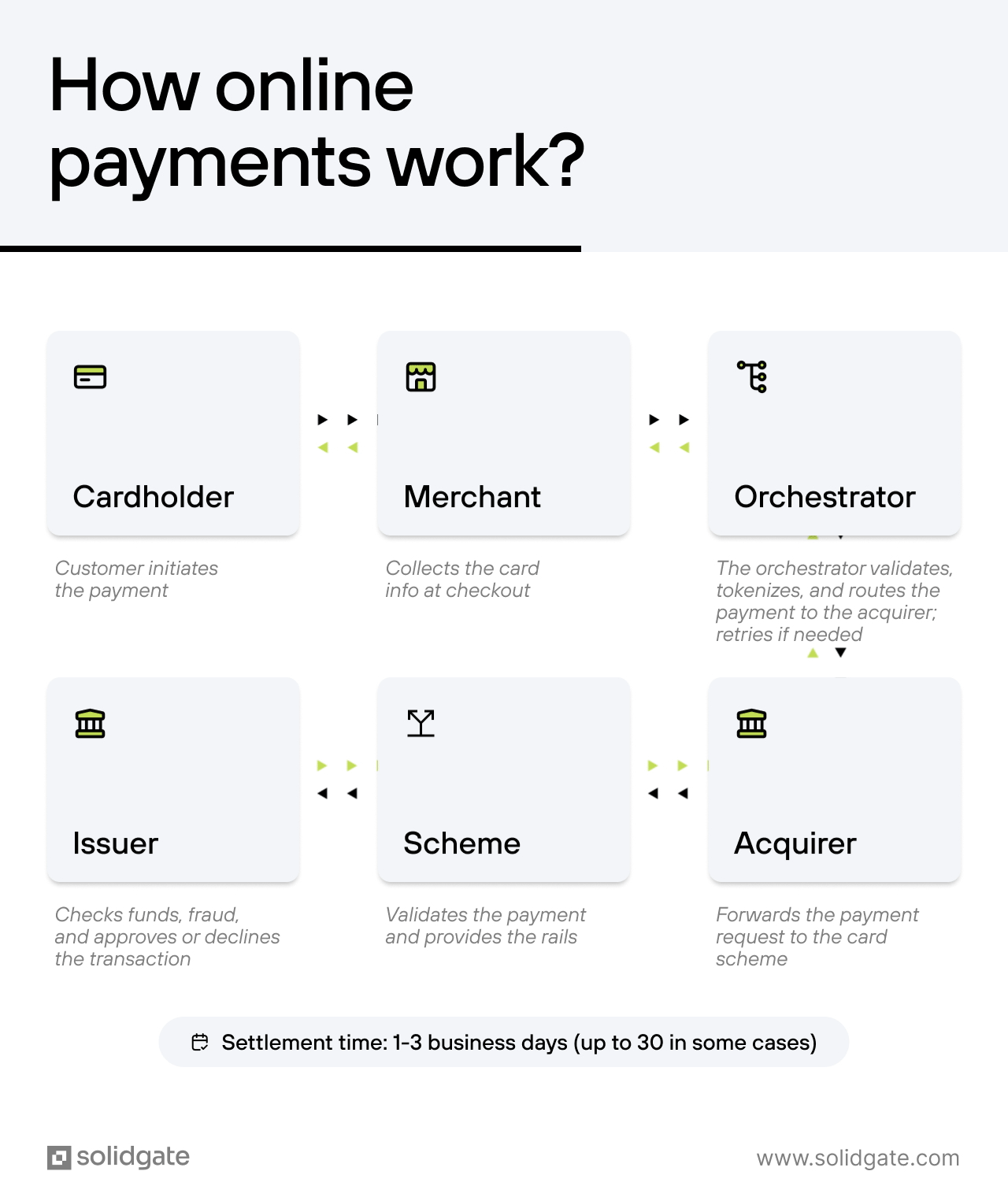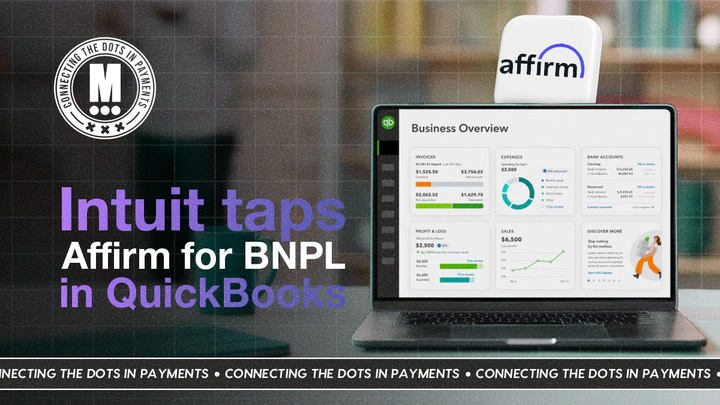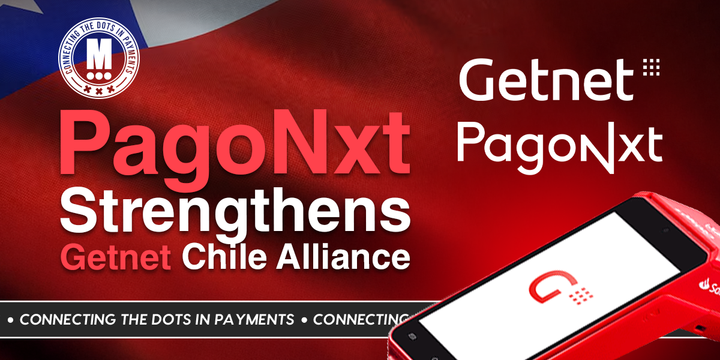Payrails Raises €27.7M to Redefine Enterprise Payments with Modular OS

Hey Payments Fanatic!
Berlin-based Payrails, a global enterprise payments software provider, has raised €27.7 million in Series A funding to accelerate product innovation and commercial growth across the EMEA region. The round, led by HV Capital Growth Fund with backing from EQT Ventures, General Catalyst, and a16z, brings total funding to €45.8 million, making it one of Europe’s largest fintech Series A rounds in 2025.
“We’re building the payment operating system enterprises have been waiting for, more control, visibility, and flexibility than ever before,” said CEO Orkhan Abdullayev.
Founded in 2021 by ex-Delivery Hero execs, Payrails has seen explosive growth:
- Processed 1M+ daily operations in 2024
- Expanded to 30+ new markets
- Serves brands like Puma, Vinted, Flix, Careem, and Just Eat Takeaway
It's an all-in-one, modular platform that spans pay-ins, orchestration, payouts, tokenization, analytics, reconciliation, and in-person payments, designed to abstract away complexity for fast-scaling enterprises.
“Their traction, SaaS metrics, and client base show Payrails is setting a new standard,” said Alexander Joel-Carbonell, HV Capital.
Payrails now supports 100+ integrations, including Stripe, Adyen, SAP, Snowflake, and Forter. The company is expanding teams in Berlin, London, Paris, Dublin, Cairo, and Dubai, with senior hires from Stripe, Miro, and Delivery Hero.
Backed by strategic partners like Mastercard, Payrails is building the financial infrastructure to power the next wave of global, scalable, and composable payment operations.
Read more global payment industry updates below 👇 and I'll be back with more on Monday!
Cheers,
Discover FinTech innovation across APAC. Stay informed with weekly updates—join now!

NEWS
🇸🇪 Klarna CEO Sebastian Siemiatkowski sounds alarm on AI job cuts causing recession. He predicted that the accelerating pace of AI adoption could trigger a short-term slowdown and urged business leaders to rethink jobs, reskilling, and their workforce strategy. Meanwhile, Klarna has launched an AI-powered phone hotline featuring a digital clone of its CEO; this innovative tool personalizes customer interactions, answering questions and gathering feedback.
🇺🇸 Klarna partners with Nift to enhance the customer experience and drive revenue growth. The partnership addresses a growing need among retail, payments, streaming, and fitness platforms for more meaningful, nonintrusive ways to engage customers.
🇺🇸 Marqeta to power new Klarna debit card in the U.S. With its modern, flexible card issuing platform, Marqeta makes it possible for global leaders like Klarna to expand to new markets and offer innovative payment options tailored to evolving customer needs.
🇺🇸 Stripe will help millions of Shopify merchants accept stablecoin payments. Shoppers will be able to pay with USDC on Base using their preferred crypto wallet. By default, Stripe allows merchants to receive stablecoin payments in their preferred local currency, which is then deposited into their bank account, just like any other payment they receive.
🇵🇰 Allied Bank, UnionPay, and Paysys partner to launch tokenized tap-and-pay in Pakistan. This collaboration empowers ABL customers. ABL will now offer tokenized mobile payment solutions that replace sensitive cardholder data with unique tokens, enhancing security while enabling faster transactions..
🇸🇬 Vistra acquires payroll platform iiPay. The acquisition is expected to serve Vistra's clients with "improved automation in payroll processing, enhanced multi-country payroll consolidation and reporting, and stronger support for complex international operations", according to a statement.
🇺🇸 Bank of America’s Stablecoin play hinges on U.S. lawmakers’ next move. Lawmakers are working on a bill to regulate stablecoins. The GENIUS Act bill would set strong rules on how stablecoins should be backed and handled. It mandates that each stablecoin must be supported by real U.S. dollars or other assets that can be quickly sold.
🇮🇳 PayG appoints Harmeet Sethi as Chief Executive Officer. Sethi's leadership is expected to drive the company's growth and expansion in the FinTech sector. Under his guidance, PayG aims to enhance its mobile app offerings, focusing on convenience, accessibility, and security for users and merchants alike.
🇮🇳 Travel FinTech Scapia launches Rupay credit card to target UPI payments, merges credit line and statement with Visa card. Users can see a unified credit card statement, and a single bill is generated at the end of the billing cycle. The company targets young millennials and Gen Z customers who are looking for travel offers and rewards.
🇮🇳 Snapmint set to raise $40M led by General Atlantic. This will be the third funding round for the Mumbai-based startup since March 2022. The company attributes much of its growth to D2C brands using Snapmint’s installment payment options
🌍 Bonprix and Trustly to launch new partnership streamlining payments in the Nordics. Through this collaboration, Trustly's innovative A2A payment solution will be implemented in Finland, Sweden, and Norway. This enables a faster, smoother, and more secure payment experience for Bonprix's Nordic customers.
🇲🇳 Capitron Bank joins Thunes’ Direct Global Network to streamline payments in the Mongolian market. Customers will be able to send funds instantly across borders to bank accounts, mobile wallets, cards, and cash pick-up locations worldwide. With Mongolia’s export volumes experiencing double-digit growth, transactions continue to increase.
🇳🇱 Adyen opts for build over buy. Dutch payments processor Adyen plans to keep fueling expansion, including in the U.S., by building its software and systems over buying up other businesses, Adyen’s president for North America, Davi Strazza, said in an interview.
🇮🇳 Sebi set to launch new UPI mechanism for MFs and brokers. This initiative aims to ensure investors make payments only to verified entities, accompanied by a visual verification cue. A 'Sebi check' functionality is also under development, allowing investors to verify the authenticity of their UPI ID.
GOLDEN NUGGET
When you make an 𝐨𝐧𝐥𝐢𝐧𝐞 𝐩𝐚𝐲𝐦𝐞𝐧𝐭, do you know how many parties are involved and who they are?

1️⃣ 𝐂𝐚𝐫𝐝𝐡𝐨𝐥𝐝𝐞𝐫 (𝐜𝐮𝐬𝐭𝐨𝐦𝐞𝐫)
First, a customer enters their card details (PAN, expiration date, CVV) on a merchant’s website or app to buy something.
2️⃣ 𝐌𝐞𝐫𝐜𝐡𝐚𝐧𝐭
The merchant collects card info via a checkout form and sends a payment request—including order details, amount, and currency—to a Payment Orchestrator.
3️⃣ 𝐎𝐫𝐜𝐡𝐞𝐬𝐭𝐫𝐚𝐭𝐨𝐫/𝐏𝐚𝐲𝐦𝐞𝐧𝐭 𝐎𝐫𝐜𝐡𝐞𝐬𝐭𝐫𝐚𝐭𝐢𝐨𝐧 𝐏𝐥𝐚𝐭𝐟𝐨𝐫𝐦 (e.g. Solidgate)
The Payment Orchestrator links merchants and providers, routing transactions efficiently by validating card data, choosing optimal acquirers, handling retries, and managing 3DS if needed.
4️⃣ 𝐀𝐜𝐪𝐮𝐢𝐫𝐞𝐫 (e.g. Adyen, Worldpay)
The acquirer enables card payments by receiving and forwarding requests through card schemes, acting as the merchant, and settling funds once authorized.
5️⃣ 𝐂𝐚𝐫𝐝 𝐒𝐜𝐡𝐞𝐦𝐞 (Visa, Mastercard)
Card schemes serve as the “payment rails” linking acquirers and issuers, routing transactions via the card BIN and performing risk, fraud, and compliance checks.
6️⃣ 𝐈𝐬𝐬𝐮𝐞𝐫’𝐬 𝐁𝐚𝐧𝐤 (e.g. 𝐂𝐡𝐚𝐬𝐞, 𝐁𝐚𝐫𝐜𝐥𝐚𝐲𝐬)
The cardholder’s bank steps in to do a quick background check: Is the card real? Are there enough funds or credit? Does anything look suspicious?
If all’s clear, it gives the green light with an authorization code. If not, it shuts it down with a reason.
The merchant gets the answer—approved or declined—and if it’s a yes, the order moves ahead. The actual money follows behind, settling in the next couple of business days.
🔁 𝗧𝗵𝗲 𝗣𝗮𝘆𝗺𝗲𝗻𝘁 𝗙𝗹𝗼𝘄: Cardholder → Merchant → Orchestrator → Acquirer → Scheme → Issuer → Scheme → Acquirer → Orchestrator → Merchant
💵 𝗦𝗲𝘁𝘁𝗹𝗲𝗺𝗲𝗻𝘁 𝘁𝗶𝗺𝗲 can range from 𝟭 𝘁𝗼 𝟯𝟬 𝗱𝗮𝘆𝘀, depending on:
► Payment method: Cards settle faster than bank transfers or ACH.
► Acquirer/Processor: Some process payments quicker than others.
► Card scheme: Visa, Mastercard, Amex vary, especially for cross-border transactions.
► Country & currency: International payments take longer due to conversions and regulations.
► Merchant account type: High-risk or new merchants may face delays from compliance checks.
► Transaction type: Refunds, chargebacks, and disputes take longer.
► Weekends/holidays: Most banks and processors don’t settle payments during these times.
► Clearing time: Depends on the bank’s processing speed.
Source: Solidgate
Want your message in front of 100.000+ FinTech fanatics, founders, investors, and operators?
Shoot me a message on LinkedIn or send me an e-mail.






Comments ()